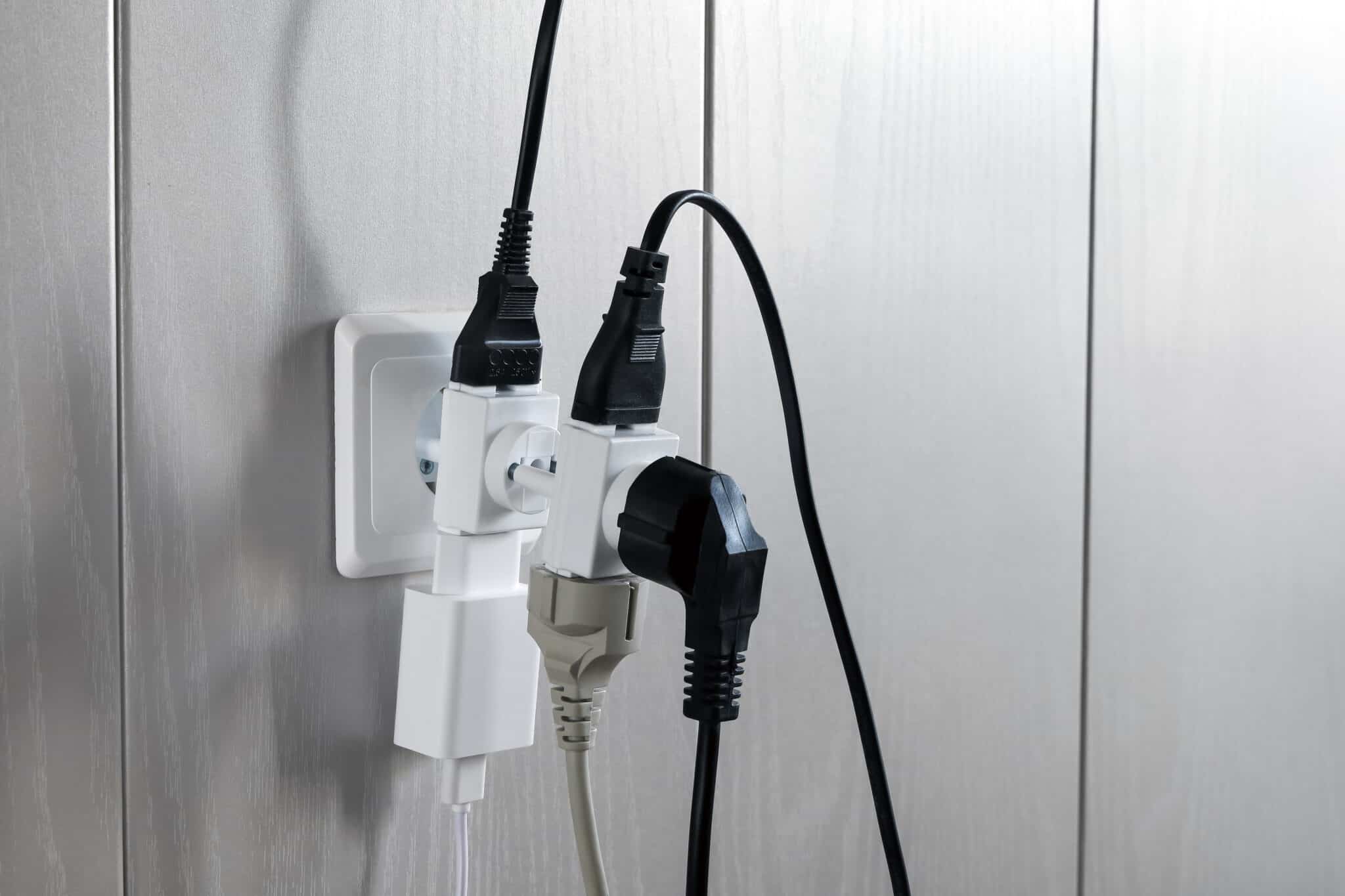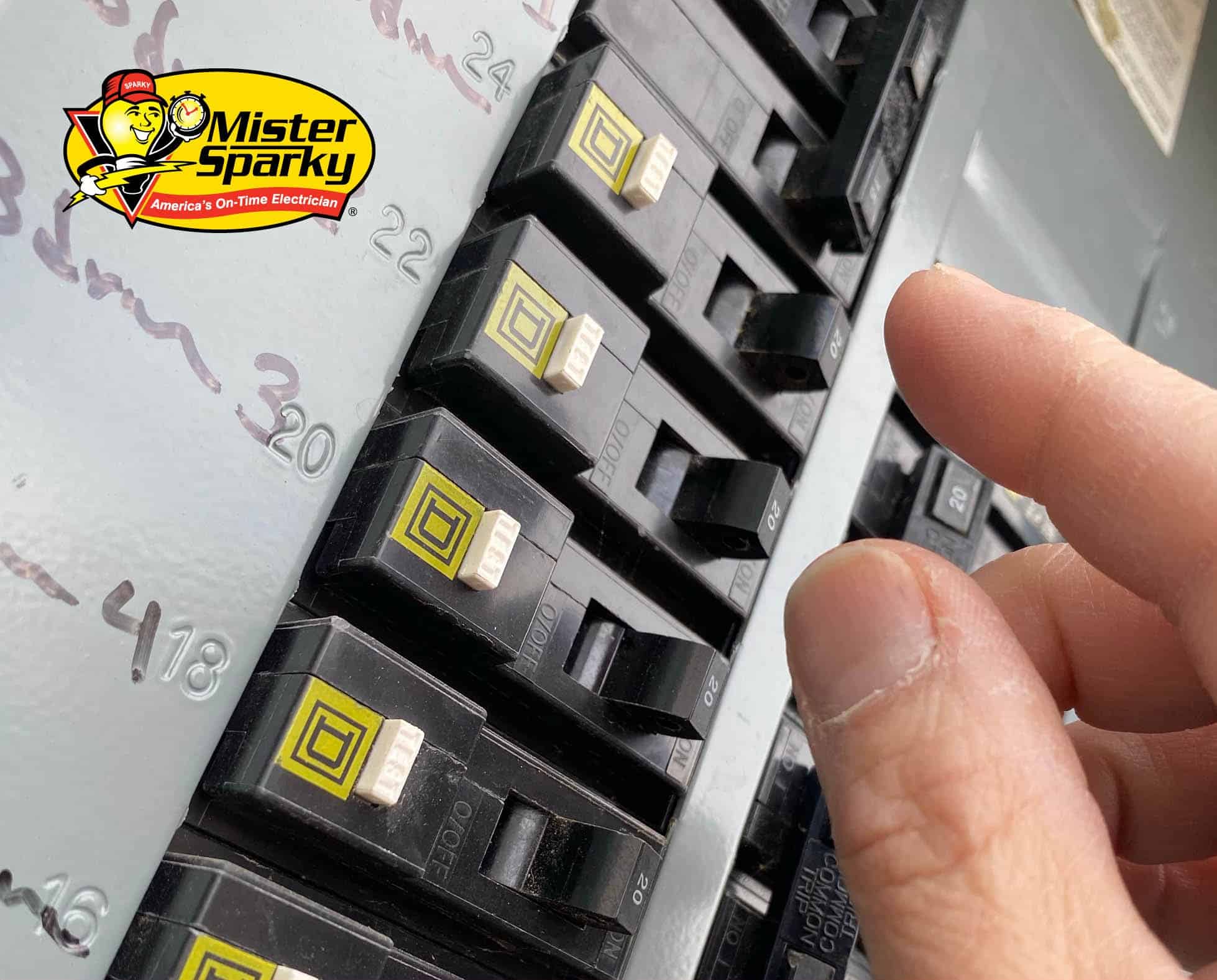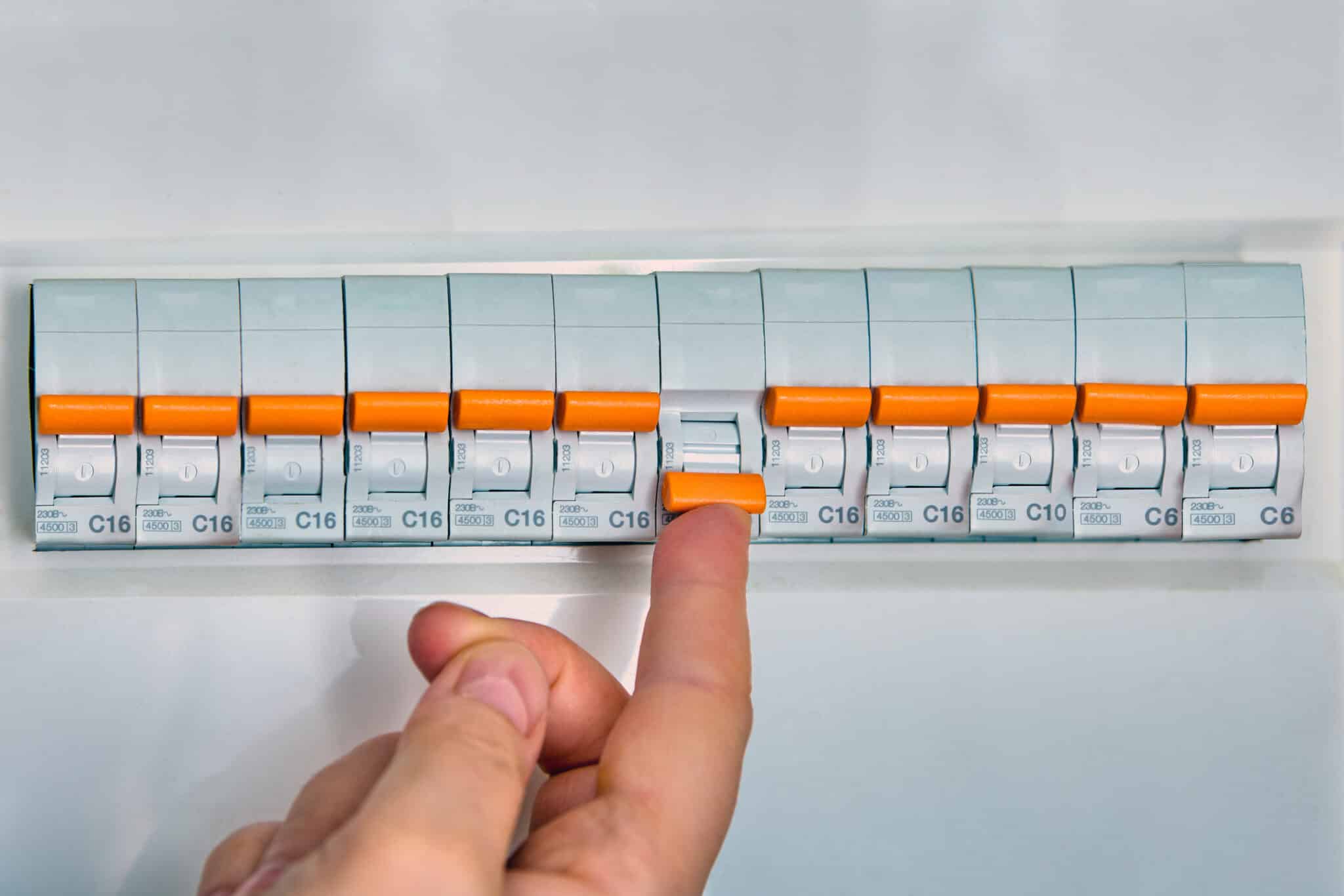Are you frequently puzzled by the question, “Why do my breakers keep tripping?” If you’re residing in Charleston, SC, or the surrounding areas like Mt. Pleasant, SC, you’re not alone. This common household issue is more than just an inconvenience, it could signal deeper electrical problems. Understanding the hidden causes behind these trips is essential for ensuring your home’s safety and efficiency.
Breakers keep tripping for various reasons, some of which are often overlooked. From malfunctioning appliances to overloaded circuits, the culprits behind these incidents can be subtle yet significant. Identifying these underlying issues is the first step toward resolving them. It’s crucial not only for the functionality of your electrical system but also for the protection of your home and family.
Many homeowners might not realize the urgency of addressing these issues promptly. Ignoring frequent breaker trips can lead to more severe problems, including potential fire hazards. Whether you’re in Charleston or Mt. Pleasant, SC, recognizing the signs of electrical distress is key. Taking action can help prevent damage and ensure your electrical system operates smoothly.
Understanding the reasons breakers keep tripping is vital for maintaining a safe and efficient home. This article will explore seven hidden causes that should not be ignored. By becoming aware of these issues, homeowners can take proactive steps to safeguard their homes. Addressing these concerns promptly can restore your electrical system’s integrity and give you peace of mind.

Overloaded Circuits: A Common Culprit for Breakers Tripping
One of the leading reasons breakers keep tripping is overloaded circuits. This occurs when too many appliances or devices attempt to draw power from a single circuit at the same time. Homes in Charleston, SC, especially those with aging electrical systems, are particularly vulnerable to this problem. Recognizing the signs of an overloaded circuit is essential to avoid unnecessary wear or damage to your system.
When several high-energy devices run concurrently, such as microwaves, space heaters, or air conditioners, the circuit’s capacity may be exceeded. As a protective measure, the breaker trips to prevent overheating and reduce fire risk. Residents in Mt. Pleasant, SC, may notice this especially during times of high power usage. If breakers keep tripping under these conditions, it’s a strong signal that your current load demands a closer look.
Solving an overload isn’t as simple as unplugging a few items. In many cases, a licensed electrician may need to assess the situation and recommend long-term solutions—such as installing new circuits or upgrading your panel. These improvements help distribute the electrical load more evenly, ensuring that your system remains both safe and efficient.
Ignoring the signs of overload can lead to more severe electrical issues, including damage to appliances or potential fire hazards. If breakers keep tripping consistently, it’s a clear call for action. Proactive steps not only enhance the safety of your home but also help you avoid costly emergency repairs down the line. Managing your home’s electrical load effectively is a key part of maintaining a modern, resilient power system.
Faulty or Aging Wiring: Hidden Dangers in Your Walls
One of the most overlooked reasons breakers keep tripping is the presence of faulty or aging wiring behind your home’s walls. In Charleston, SC, where historic homes are part of the charm, this issue is especially common. Over time, wires can deteriorate, and their insulation may degrade, increasing the likelihood of short circuits. When this happens, your circuit breaker trips as a vital safety measure to prevent overheating or potential fires.
Detecting faulty wiring can be tricky since it’s not visible. However, signs like flickering lights, outlets that feel unusually warm, or even a faint burning smell can all signal trouble. If breakers keep tripping and you’re experiencing these symptoms, especially in an older home in Mt. Pleasant, SC, it’s a strong indicator that your electrical wiring needs attention. A professional inspection is crucial in these cases to prevent further damage or safety risks.
Neglecting aging wiring can lead to serious hazards. Besides the constant hassle when breakers keep tripping, the most significant concern is the increased fire risk. This danger highlights why it’s so important to act at the first sign of wiring issues. A licensed electrician can assess the condition of your system and recommend whether repairs or a full update are necessary.
Taking proactive steps to repair or replace worn wiring not only reduces electrical interruptions but also fortifies your home against hidden dangers. It prepares your electrical system to safely meet the demands of today’s technology-driven households. For Charleston and Mt. Pleasant homeowners, maintaining safe, modern wiring is an essential part of ensuring long-term safety and peace of mind.
Malfunctioning Appliances: How They Cause Breakers to Trip
Malfunctioning appliances are another key reason why breakers keep tripping, often catching homeowners off guard. Devices that are faulty or nearing the end of their lifespan can draw excessive power, overwhelming the circuit and leading to frequent interruptions. In Charleston, SC, where homes often feature a mix of older and modern appliances, this problem is especially prevalent. Identifying the source of these trips is essential to maintaining a safe and reliable electrical system.
When an appliance starts to fail, the warning signs aren’t always obvious. You might notice inconsistent performance, like a dryer stopping mid-cycle or a microwave taking longer to heat food. For residents in Mt. Pleasant, SC, these symptoms may signal a deeper electrical issue. If breakers keep tripping when certain appliances are in use, it’s a strong indicator that the unit is malfunctioning and placing undue strain on your system.
Resolving the issue involves more than just flipping the breaker back on. It requires isolating the faulty appliance through a process of elimination and possibly consulting a professional. Once identified, the device may need to be serviced or replaced. Taking these steps not only reduces system strain but also helps prevent future disruptions and prolongs the health of your home’s wiring.
Ignoring the signs of a malfunctioning appliance can be more than just inconvenient, it can be dangerous. Continued use can result in overheating, electric shocks, or even fire hazards. That’s why it’s crucial to respond promptly when breakers keep tripping without an apparent cause. Staying alert to appliance behavior and acting quickly can safeguard your home and family while keeping your electrical system running efficiently and safely.
Breakers Keep Tripping? It Might Be a Ground Fault
Ground faults are a less common but critical reason why breakers keep tripping, posing a hidden danger in many homes. A ground fault happens when electrical current strays from its intended path, often through a person or an unintended conductor, creating a serious safety risk. In Charleston, SC, homes with aging or compromised wiring are particularly vulnerable to this issue. Identifying and addressing ground faults promptly is essential for maintaining household safety and preventing electrical hazards.
Residents in Mt. Pleasant, SC, might experience warning signs of a ground fault, such as a slight tingling when touching an appliance or a circuit that seems to trip without explanation. If breakers keep tripping under these conditions, it’s a strong indication that a ground fault may be to blame. These symptoms should never be dismissed, professional intervention is necessary to locate the fault and repair it safely.
Failure to address a ground fault can have serious consequences, including electric shock or fire. The urgency of resolving such issues cannot be overstated. Ensuring all appliances and wiring are correctly grounded is a vital part of electrical system maintenance. Regular evaluations by a licensed electrician can catch these issues before they escalate, offering peace of mind and enhanced safety.
Homeowners play a pivotal role in identifying early warning signs. By paying attention to how their electrical system behaves, they can detect unusual activity that may signal trouble. If you find that breakers keep tripping and you suspect a ground fault, it’s best to act quickly. Contacting a qualified professional helps secure your home’s electrical integrity and ensures the continued protection of your family.
Loose or Corroded Connections: An Overlooked Issue
Loose or corroded connections in your home’s electrical system are often hidden culprits behind the frustrating issue where breakers keep tripping. Though these problems might appear minor at first, they can disrupt the smooth flow of electricity and lead to repeated interruptions. In Charleston, SC, the humid, salt-rich air accelerates corrosion, making this issue more prevalent than many homeowners realize. Regular inspections of your electrical system can help identify these weaknesses before they cause trouble.
When wires or terminals inside panels or outlets become loose, they generate electrical resistance. This resistance creates heat, which may prompt your circuit breaker to trip as a safety measure. For residents in Mt. Pleasant, SC, noticing unexplained electrical interruptions, loose or deteriorated connections could be the cause, especially if breakers keep tripping without any obvious overload.
It’s important to note that fixing these issues isn’t typically a safe DIY task. A licensed electrician is trained to locate and repair faulty connections without creating additional risks. Attempting to tighten terminals or clean corrosion without proper tools or knowledge can lead to injury or further electrical complications. Hiring a professional ensures that your system is restored safely and effectively.
Ignoring loose or corroded connections can lead to serious consequences. Not only do they contribute to the frequency with which breakers keep tripping, but they also elevate the risk of electrical fires. Taking action at the first sign of trouble, whether it’s a flickering light, a buzzing outlet, or repeated breaker trips, can help you avoid more costly or dangerous outcomes. Keeping your electrical system well-maintained is essential for a safe and efficient home.
High Power Demand Appliances and Breaker Trips
In homes across Charleston, SC, high power demand appliances such as air conditioners, space heaters, and electric dryers are among the most common reasons breakers keep tripping. These devices draw substantial amounts of electricity, and when used alongside other appliances, they can easily overload a circuit. Homeowners should take care to understand the electrical demands of these powerful units and avoid operating them simultaneously with other high-consumption devices. This precaution helps maintain circuit stability and prevents unnecessary power interruptions.
The age and efficiency of appliances also play a key role. In Mt. Pleasant, SC, older or poorly maintained equipment may consume more energy than intended, leading to situations where breakers keep tripping more frequently. Replacing aging units with modern, energy-efficient models can significantly reduce the load on your circuits. Not only does this help prevent breaker issues, but it also contributes to lower utility bills and a reduced environmental footprint.
Smart usage patterns can also reduce strain on your electrical system. By staggering the operation of high-demand appliances, such as running the dishwasher after the laundry cycle completes, you can avoid overwhelming your circuits. This strategy not only curbs the frequency of breaker trips but also enhances the overall health of your electrical infrastructure.
Finally, consulting a licensed electrician is a proactive step for any homeowner facing persistent breaker issues due to heavy appliance usage. A professional can evaluate your home’s system and recommend solutions like circuit panel upgrades or the addition of isolated power lines for major appliances. These improvements provide long-term protection, ensure safety, and prevent the disruptions that occur when breakers keep tripping under pressure.
Incorrectly Sized Breakers: A Recipe for Frequent Tripping
Incorrectly sized breakers are a hidden culprit behind the common frustration many Charleston, SC, homeowners face, “Why do breakers keep tripping?” When a breaker is too small for the circuit it’s protecting, it can trip regularly, even when the electrical load is within normal limits. This mismatch between breaker capacity and circuit demand often goes unnoticed until persistent interruptions occur. Identifying and correcting this issue is essential to maintaining a safe and efficient electrical system.
In Mt. Pleasant, SC, many residents may be unaware that their electrical problems could be tied to improperly sized breakers, especially if changes were made to their home’s layout or electrical usage over time. When renovations or new appliances increase the power draw on a given circuit, the original breaker may no longer be sufficient. In these cases, breakers keep tripping not due to faults or malfunctions, but because the system is simply under-equipped for the load. Consulting with a licensed electrician to evaluate and potentially replace these components can solve the issue and prepare the home for future energy demands.
Sometimes, the root cause is not the size but the condition of the breaker itself. Breakers, like any mechanical component, degrade over time. If your breakers keep tripping without a clear overload or wiring fault, the unit might be worn out or failing. Replacing an aging breaker can restore stability and prevent unnecessary shutdowns.
Taking corrective action on improperly sized or outdated breakers is a proactive step toward a safer home. Ignoring these warning signs can lead to increased risks, including potential electrical fires. Charleston-area homeowners are encouraged to regularly assess their electrical systems, especially after upgrades, to ensure everything is up to code and properly matched. Making sure your breakers are appropriately sized and functioning correctly is a smart investment in long-term electrical safety and reliability.

Preventive Measures to Avoid Future Breaker Trips
Understanding the causes behind frequent breaker trips is the first step toward prevention. Homeowners in Charleston, SC, can take several proactive measures to ensure their electrical systems remain robust and reliable. Regular inspections by a Licensed Electrician, such as the trusted professionals at Mister Sparky of Charleston, can help identify potential issues before they escalate. This approach allows for early detection of wear and tear or outdated components that might lead to situations where breakers keep tripping, disrupting daily routines.
Another effective strategy involves being mindful of your home’s electrical load. Residents in Mt. Pleasant, SC, should consider the capacity of their circuits when operating multiple appliances at once. Overloading is a common reason breakers keep tripping, especially in homes with limited or aging wiring. Spacing out high-demand appliance usage can help prevent these interruptions and extend the lifespan of your electrical system.
Investing in surge protectors is also a smart decision to protect your home’s electronics. These devices absorb sudden voltage spikes, which could otherwise lead to breaker trips or damage. Surge protectors act as a buffer, reducing strain on your system and safeguarding both your appliances and circuit panel.
Finally, upgrading your home’s electrical infrastructure may be necessary, particularly in older homes not designed to support today’s power needs. Mister Sparky of Charleston can recommend and implement targeted improvements, such as adding dedicated circuits for heavy-use appliances. These upgrades reduce the likelihood of breakers tripping, boost overall efficiency, and significantly enhance the safety of your home’s electrical system.
Frequently Asked Questions
Why do breakers keep tripping?
Breakers often trip due to overloaded circuits, a common yet overlooked issue. Faulty wiring or aging appliances can also cause this problem. Identifying and addressing these causes early prevents potential safety hazards. Regular inspections by professionals ensure your electrical system’s efficiency and safety.
What are common causes of tripped breakers?
Several factors can lead to breakers frequently tripping in your home. Overloading circuits with too many appliances is a typical cause. Faulty electrical wiring or damaged outlets often contribute to this issue as well. Lastly, malfunctioning appliances can strain your system, causing breakers to trip as a protective measure.
How can I prevent breakers from tripping?
To prevent breakers from tripping, start by limiting the number of devices plugged into a single circuit. Regularly check for and repair any damaged wiring or outlets in your home. Ensure your appliances are in good working order to avoid unnecessary strain on your electrical system. Lastly, consider having a professional from Mister Sparky assess your system to identify and fix any underlying issues.
Can old appliances cause breakers to trip?
Yes, old appliances can indeed cause breakers to trip. As they age, their internal components may wear out, leading to increased electrical demands. This can overload circuits, prompting the breaker to trip as a safety measure. Regularly checking and replacing outdated appliances can help prevent this issue, ensuring your home’s electrical system runs smoothly.
When should I call an electrician if breakers keep tripping?
If breakers in your home frequently trip, it’s time to call an electrician. Persistent issues might point to deeper electrical problems that need expert attention. Mister Sparky’s professionals can diagnose and fix these hidden dangers. Ensuring your electrical system’s safety and reliability should always be a priority.






